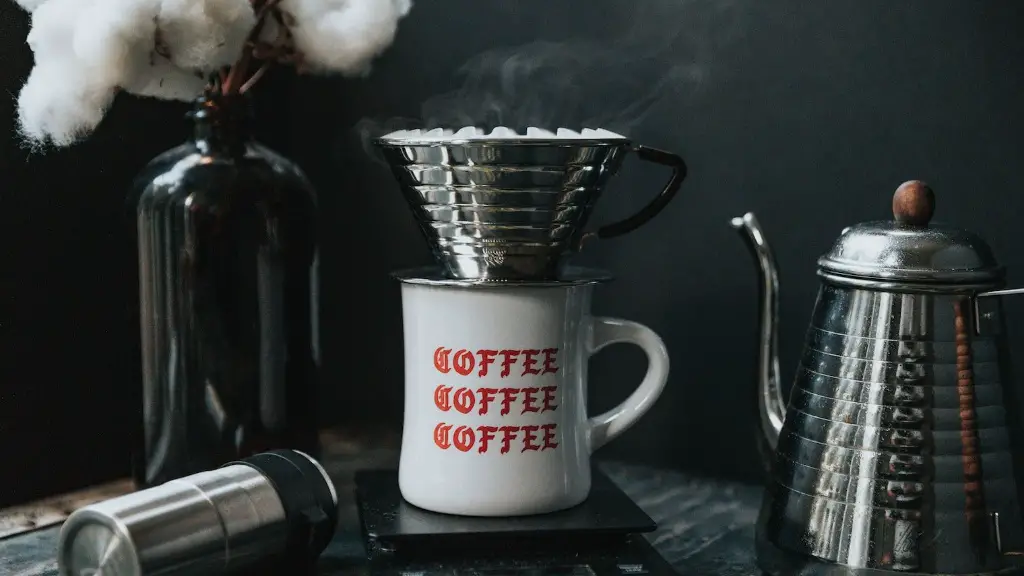High Blood Pressure and Caffeine
Coffee is a popular beverage, and one that many people turn to when they need a pick-me-up. High blood pressure (HBP), or hypertension, is often discussed but often overlooked as a potential risk factor linked to the consumption of coffee and its other components.
It is important to understand the potential effects of caffeine on individuals with high blood pressure and to be aware of the potential health risks associated with consuming too much caffeine. Caffeine is a stimulant that can have an effect on the nervous system, heart rate, and blood pressure. It can also cause blood vessels to constrict, which can in turn increase blood pressure. It is therefore important to be mindful of the amount of caffeine you are consuming if you have high blood pressure.
The American Heart Association recommends that individuals with high blood pressure should be aware of the effects of caffeine and limit their consumption to no more than 200 milligrams per day. That’s the equivalent of one to two 8-ounce cups of coffee. Additionally, if you are taking any medications to manage your blood pressure, it is best to talk to your doctor before ingesting caffeine.
Studies have shown that there is a link between caffeine consumption and increases in blood pressure, particularly in those with preexisting high blood pressure. A study published in the American Journal of Clinical Nutrition found that, even in people with normal blood pressure, caffeinated drinks were associated with an increase in systolic blood pressure. In people with already elevated blood pressure, the study found that consuming coffee and other caffeinated drinks were associated with an even higher rise in blood pressure.
Coffee Intake and High Blood Pressure
It is best to limit coffee intake if you have high blood pressure or hypertension. According to the American Heart Association, those with high blood pressure should only consume up to 200 milligrams of caffeine per day, which is equivalent to one to two 8-ounce cups of coffee. Even then, consuming coffee or other caffeinated drinks can cause a higher rise in blood pressure.
In people with preexisting hypertension, not only has coffee been found to increase systolic blood pressure, it can also affect antihypertensive medication. Studies published in the European Journal of Clinical Nutrition and the International Journal of Cardiology suggest that caffeine can interfere with antihypertensive medication, making it less effective and potentially leading to an increase in blood pressure.
It is important to speak to your doctor if you have high blood pressure or hypertension before consuming coffee and other caffeinated drinks. It is important to understand the effects of caffeine on high blood pressure and the potential risks associated with its excessive consumption.
Effects of Coffee on Other Health Conditions
In addition to its effects on high blood pressure, drinking coffee can also have an effect on other health conditions. Caffeine can worsen certain conditions such as anxiety, insomnia, and digestive issues. As such, it is important to be aware of the potential risks associated with drinking coffee and to consider other beverages as well.
People who are pregnant should also be mindful of the effects of caffeine on their health. Studies have linked excessive caffeine consumption to low birth weight, preterm delivery, and miscarriage. As such, it is important to seek medical advice before consuming caffeinated drinks, as well as other beverages that may contain caffeine, during pregnancy.
Healthy Alternatives to Caffeine
While coffee can be a great way to jumpstart your day, there are alternatives to caffeinated drinks for those looking for a healthier option. Herbal teas, for instance, can provide a variety of health benefits such as increased energy, improved digestion, and better immune system function, without the potential risks associated with caffeine consumption.
Green tea, in particular, is rich in antioxidants and polyphenols that can help reduce inflammation and improve cardiovascular health. Additionally, if you are looking for an energy boost, fruits and vegetables can provide the same energizing effects without the potential risks associated with caffeine.
Tips for Managing High Blood Pressure
In addition to limiting coffee and other caffeinated drinks, there are other lifestyle changes that can help reduce your blood pressure. Getting regular exercise and eating a healthy, balanced diet can be beneficial for both your overall health and your blood pressure.
Regular physical activity can help to lower and maintain your blood pressure, while eating a diet rich in whole grains, fruits, vegetables, and lean proteins can also be beneficial. Additionally, reducing processed foods and foods high in sodium, sugar, and saturated fats can help to improve your blood pressure.
Caffeine and Dehydration
Caffeine can have a diuretic effect and can cause dehydration, which can further increase blood pressure. For this reason, it is important to drink plenty of water throughout the day to stay hydrated and to mitigate the potential effects of caffeine on your blood pressure.
Caffeine can also interfere with the body’s ability to absorb important minerals and vitamins. For this reason, it may be beneficial to take a multivitamin to ensure that your body is getting the essential nutrients it needs.
Blood Pressure Medication and Caffeine
If you are taking medication to manage your high blood pressure, it is important to talk to your doctor about the potential risks of consuming caffeine. Caffeine can interfere with certain medications, making them less effective and potentially causing an increase in blood pressure.
Additionally, if you are taking over-the-counter medications to manage your hypertension, it is important to be aware of any hidden sources of caffeine on the label. Some medications contain caffeine, and ingesting too much can cause an increase in your blood pressure.
Tips for Limiting Caffeine Intake
If you have high blood pressure, it is important to be mindful of your caffeine intake. The American Heart Association recommends limiting your intake to no more than 200 milligrams per day, which is equivalent to one to two 8-ounce cups of coffee. Additionally, it is important to be aware of hidden sources of caffeine, such as medications and over-the-counter supplements.
It is also important to look for alternatives to caffeinated beverages. Herbal teas, non-caffeinated energy drinks, and fresh fruits and vegetables can provide the same energizing benefits without the potential risks of caffeine. Lastly, drinking plenty of water throughout the day can help to keep you hydrated and to prevent the potential effects of dehydration on your blood pressure.


